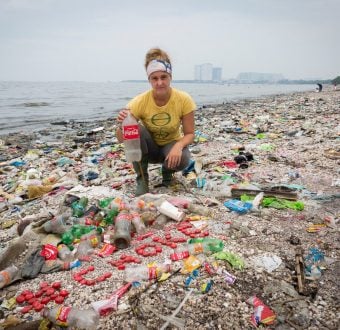In Midland, Michigan, site of Dow’s headquarters, Greenpeace
joined local activists to deliver a letter to Dow detailing the
environmental group’s demands of the company, which merged with
Union Carbide (who owned the factory in Bhopal, India) this
year.
“Bhopal suffered the worst industrial accident in history, and I
would not wish the experience on anyone,” said Navroz Mody,
Greenpeace India Campaign Coordinator. “Dow and Union Carbide made
part of India a toxic nightmare. They must make sure the same thing
doesn’t happen anywhere else in the world.”
The lethal gas leak from the Bhopal factory in 1984 killed as
many as 7,500 people immediately and is causing tens of thousands
of people in the area to have severe medical problems. Union
Carbide only paid out an average of $370-$533 per person in
February, 1989. As many as 100,000 people are still in need of
urgent medical attention and have missed out on compensation.
The abandoned factory remains, with toxic waste and pesticide
residue strewn about the property. The groundwater in the area is
still contaminated. To illustrate this, Greenpeace activists
delivered water samples from Bhopal to Dow offices in Switzerland,
Netherlands, Chile, Thailand, China (Hong Kong), Philippines, India
and Argentina.
The letter that activists delivered to Dow in Midland included
the following demands:
“Dow has bought Union Carbide’s goods, but it’s trying to ignore |

